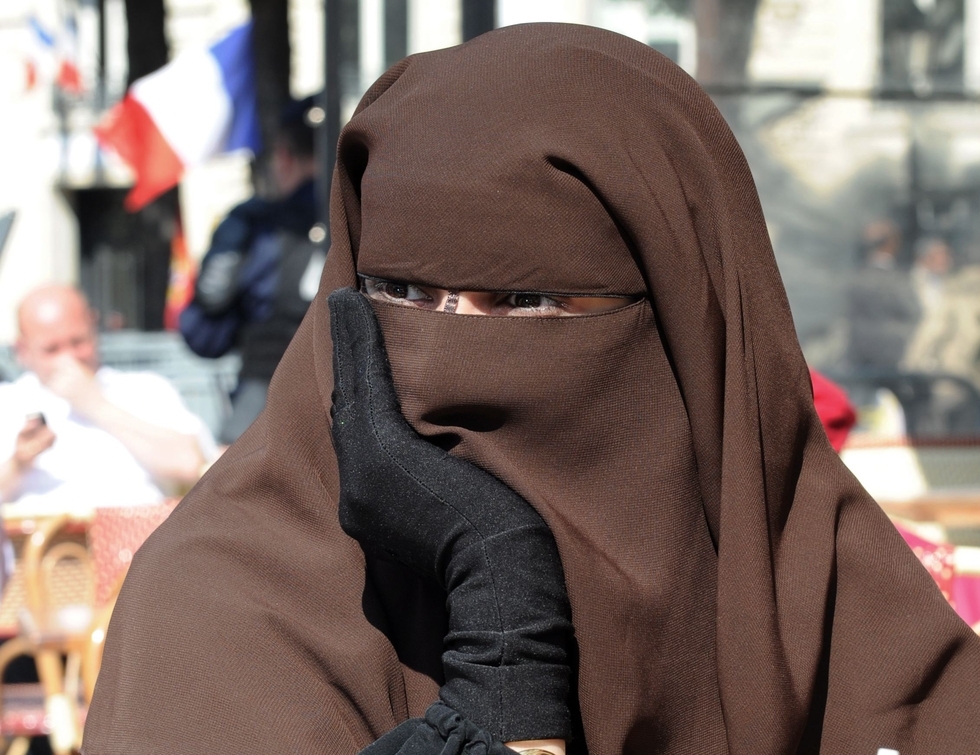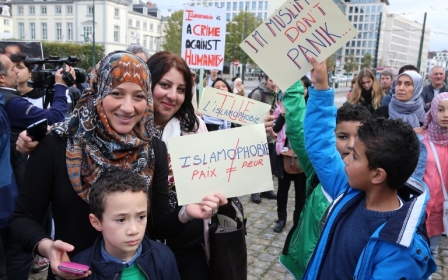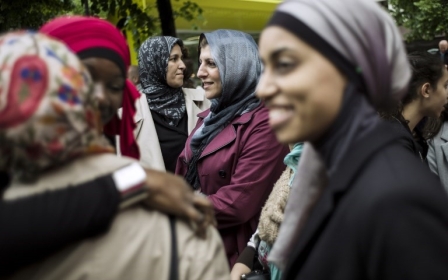UN committee: France's niqab ban violates human rights

France's niqab ban violates human rights, the United Nations Human Rights Committee found on Tuesday, after looking into the cases of two French women who were convicted for wearing a full Islamic veil.
“The Committee found that the general criminal ban on the wearing of the niqab in public introduced by the French law disproportionately harmed the petitioners’ right to manifest their religious beliefs,” a statement from the committee read, noting that the two cases marked the first time it had looked into laws banning the niqab or other full Islamic veils.
While acknowledging that French authorities could require individuals to show their faces in specific circumstances, such as when it would be necessary to identify them, the committee said it was “not persuaded by France’s claim that a ban on face covering was necessary and proportionate from a security standpoint or for attaining the goal of ‘living together’ in society”.
'It sends an important message to France that freedom to manifest one’s religion still matters'
- Amina Easat-Daas, project officer of the Counter Islamophobia Kit
It said the ban, "rather than protecting fully veiled women, could have the opposite effect of confining them to their homes, impeding their access to public services and marginalising them".
The French foreign ministry responded late on Tuesday rejecting the UN committee's decision, maintaining its position that covering one's face was "incompatible with the principle of fraternity and the basic values of a democratic and open society".
Law adopted in 2010
The UN body's decisions specifically looked at a French law adopted in 2010 which stipulates that “no one may, in a public space, wear any article of clothing intended to conceal the face”.
The French government has 180 days - or until late April 2019 - to inform the committee of steps it has taken to implement the decision, including compensating the two petitioners and any other actions to prevent similar violations in the future, such as revising the 2010 law.
While the committee’s decisions are not enforceable, as a signatory of an optional protocol of the International Covenant on Civil and Political Rights (ICCPR), France is obliged under international law to comply "in good faith".
Amina Easat-Daas, the project officer for a European Counter Islamophobia Kit released in September, welcomed Tuesday's decision.
"Although the decision is non-binding, it sends an important message to France that freedom to manifest one’s religion still matters," she told Middle East Eye, adding however that "understanding the influence of the UNHRC decision will be determined by the subsequent French report to the court".
Easat-Daas also said she saw the decision as an alternative avenue to fight anti-Muslim sentiment, telling MEE that it "highlights the potential role of top-down approaches, which naturally must be combined with grass-roots movements, in the collective countering of Islamophobia".
In 2014, the European Union Court of Human Rights ruled that the 2010 French law did not violate religious freedoms - a competing legal ruling which France will likely use in its response to the UN committee to bolster its arguments to maintain the law as is.
Over the past 15 years, France has passed a number of laws against the wearing of ‘ostentatious’ religious symbols in public institutions and face coverings - policies that have been denounced by rights activists as indirectly but deliberately targeting the country’s Muslim community.
France a 'barometer' of Islamophobia
French officials have argued that such legislation protects France’s particular brand of secularism.
While the concept of laïcité as enshrined in the French constitution initially referred to the separation of church and state, in the past few decades political discourse has increasingly referred to laïcité to question individual citizens’ expression of their personal faith in the public sphere - a shift which many activists have said plays into far-right sentiment and disproportionately impacts religious minorities in the country.
'The ban, rather than protecting fully veiled women, could have the opposite effect of confining them to their homes, impeding their access to public services and marginalising them'
- UN Human Rights Committee decision
While France does not conduct national censuses on race or religion, the US’ Pew Research Center estimated in 2016 that some 5.7 million Muslims live in France, or 8.8 percent of the population, making France the European country with the largest Muslim community.
As such, Easat-Daas had told MEE last month that France stood as a "barometer" of anti-Muslim sentiment and legislation in the European Union.
"I worry that (France) is a potential leader, that it signposts that this is acceptable," she said at the time. "When you see the French ‘loi anti-niqab’ and how that then plays out in different framings, in Belgium first, and then further and further, I’m worried that it’s gaining credence and an image of legitimacy."
New MEE newsletter: Jerusalem Dispatch
Sign up to get the latest insights and analysis on Israel-Palestine, alongside Turkey Unpacked and other MEE newsletters
Middle East Eye delivers independent and unrivalled coverage and analysis of the Middle East, North Africa and beyond. To learn more about republishing this content and the associated fees, please fill out this form. More about MEE can be found here.




